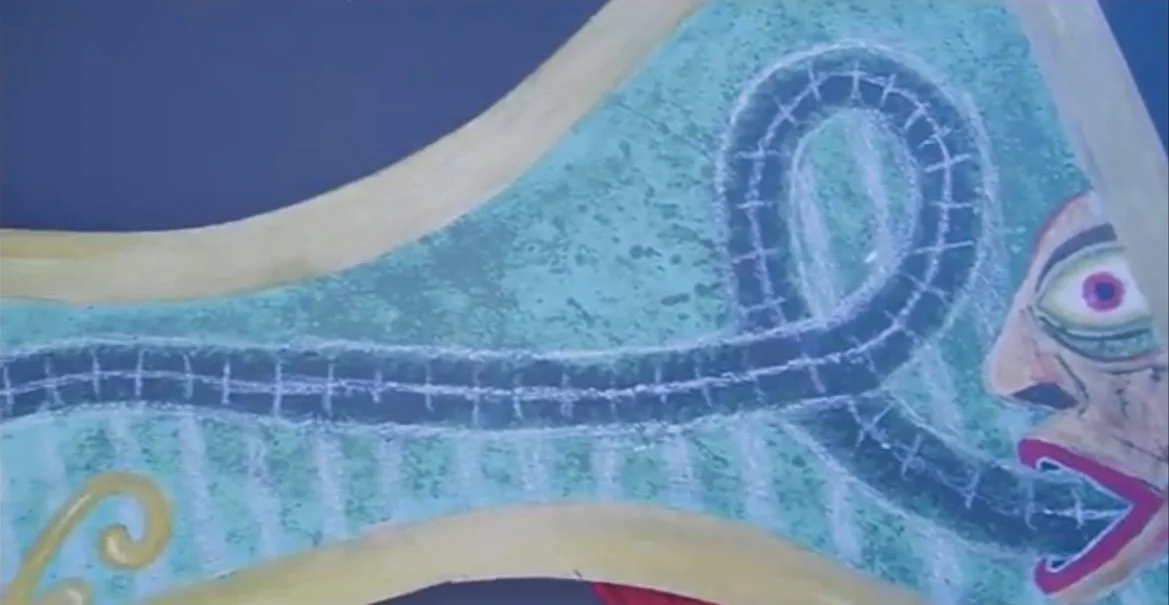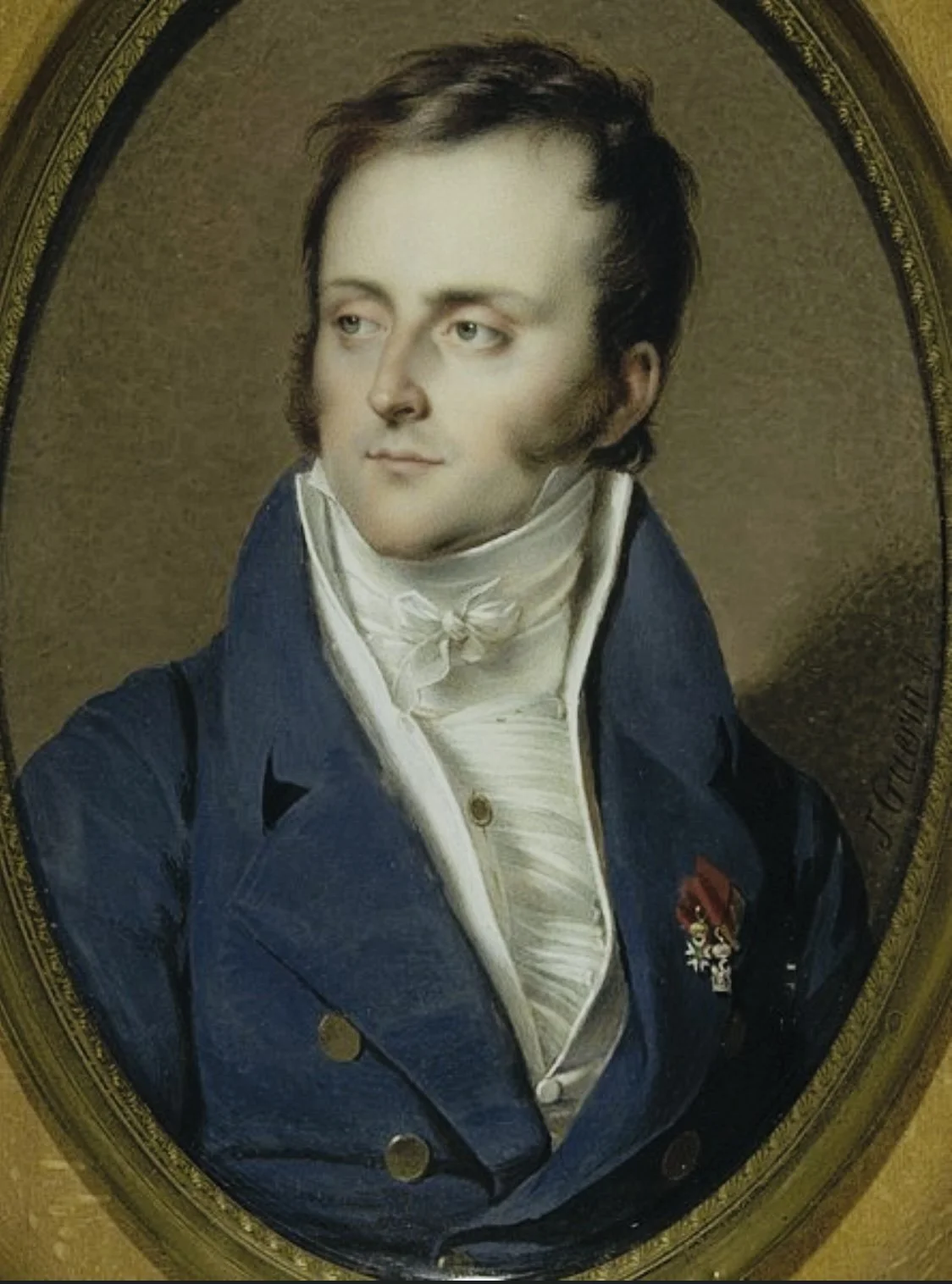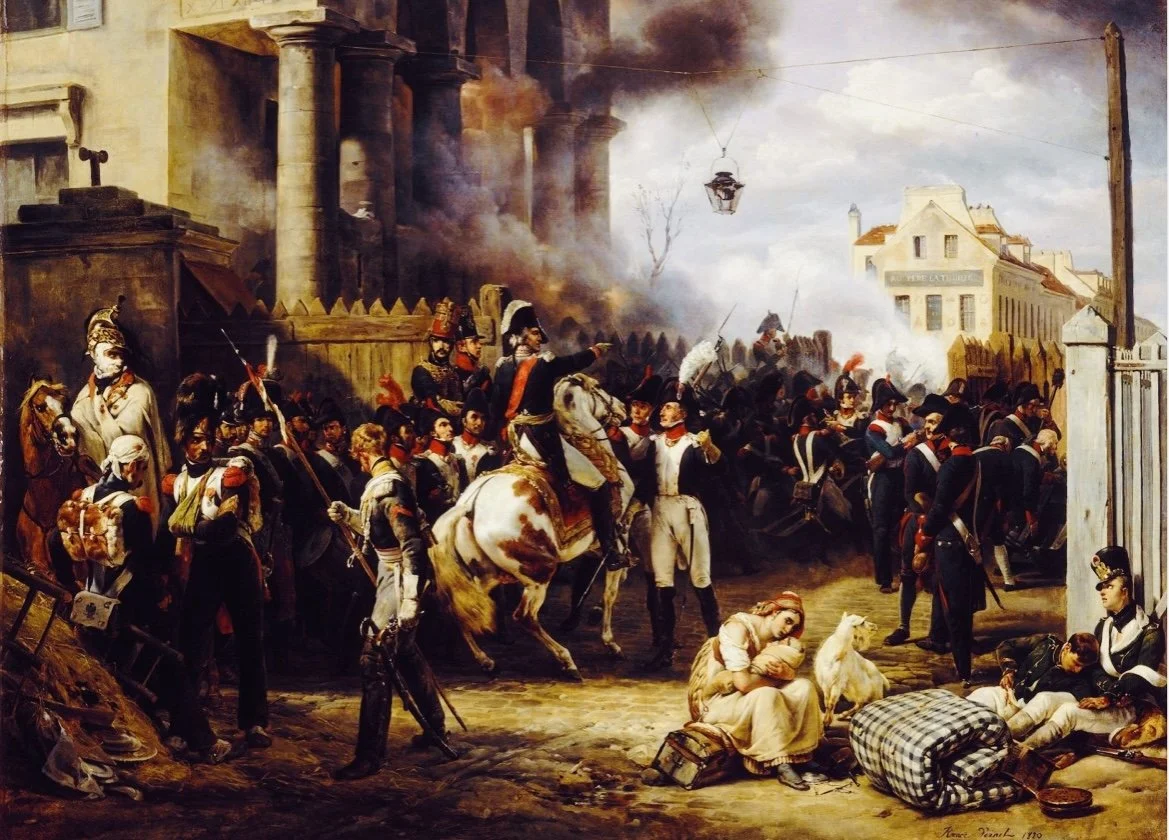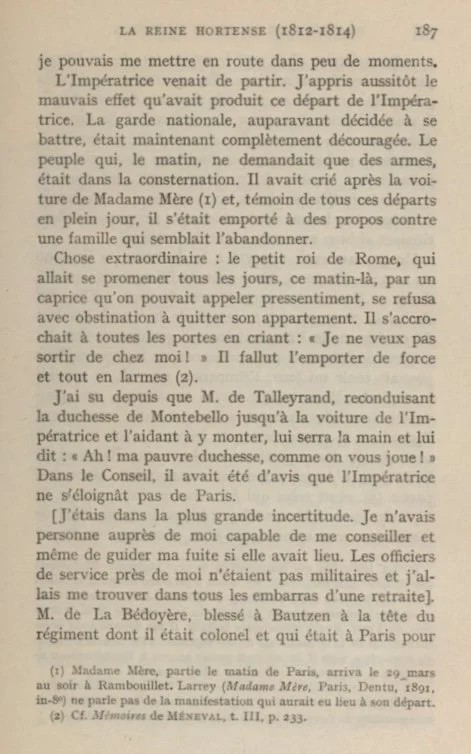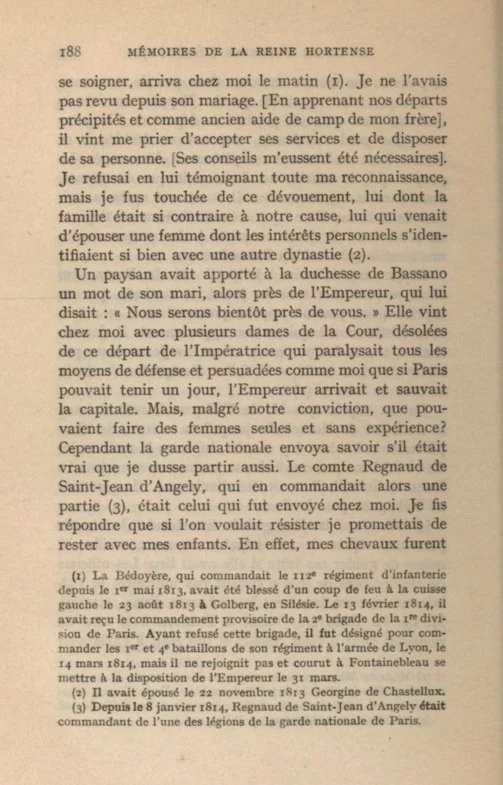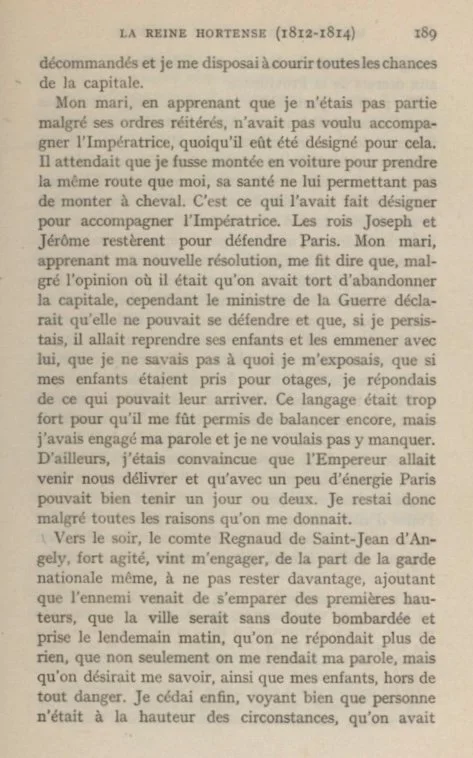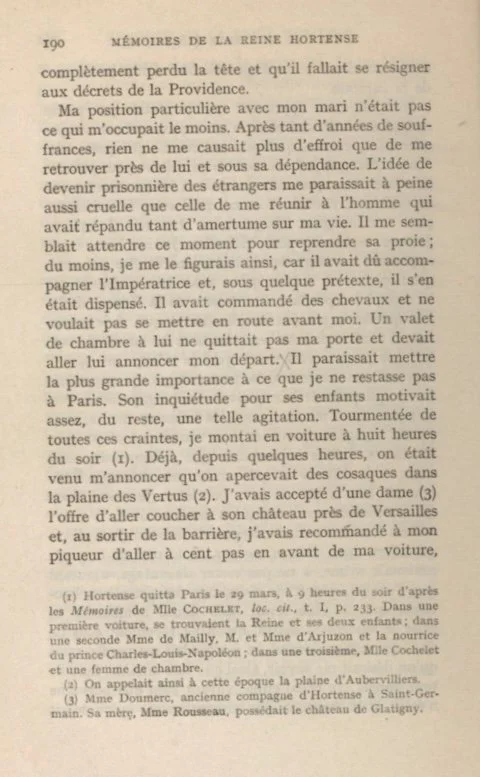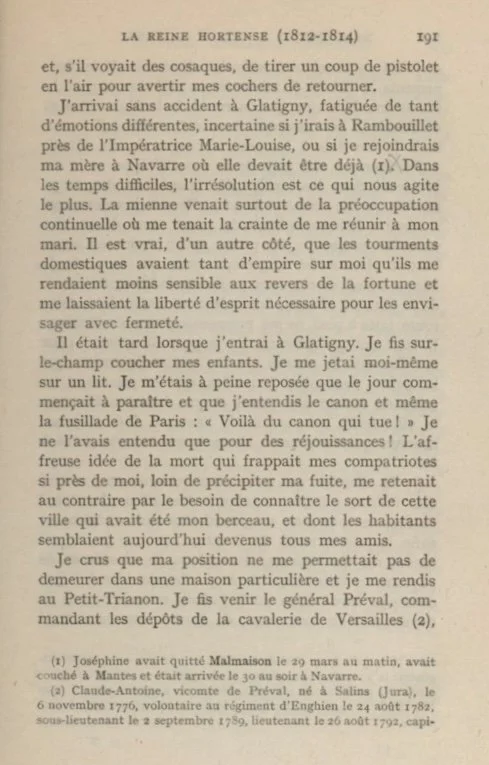Let’s have another look at Hortense’s Memoirs. If you want to read the book it is available for free at the side bar in English and French. Use the widget on the sidebar to translate the text below into pretty much any language.
We once again see how difficult it is to prevail against a well funded enemy which snakes its way from within. Awareness of subversive tactics is essential if humanity will ever learn how to prevail against such a perennially wealthy foe. With unity and integrity, Napoleon couid have maintained the sovereignty of France. The group who prevailed against Napoleon unsurprisingly brought terrorism back to France and recommenced their typical practice of murdering the innocent.
Do you feel that the innocent are safe under the present global regime? Do you feel we should unite in the interest of saving humanity from a small but hyper wealthy terrorist organization which has OBVIOUSLY hijacked our community institutions?
Our future is up to US.
Hortense’s memoirs continues:
The officers attached to my household were not soldiers and I was liable to be confronted with all the problems of a retreat.
Monsieur de La Bedoyère was announced. He had been wounded at Bautzen at the head of the regiment which he commanded and since then had been in Paris convalescing.
I had not seen him since his marriage. Hearing of our sudden departures and remembering that he formerly served as my brother's aide-de-camp, he called to place himself at my disposal.
His advice would have been useful to me, but I declined his offer although expressing my appreciation of it, for his devotion touched me, particularly as his family were so hostile to the Empire and as he had lately married a wife whose personal sympathies allied her very closely with the former dynasty.
A peasant brought the Duchesse de Bassano a line from her husband, who was with the Emperor, saying, "We shall soon be with you." She and several other ladies attached to the court came to see me.
All were greatly pained by the Empress's departure, which paralyzed all defensive measures. They shared my opinion that if Paris had resisted twenty-four hours the Emperor would have arrived and saved his capital.
But in spite of our conviction what could helpless and inexperienced women hope to accomplish?
Meanwhile the National Guard sent to inquire whether it was true that I too was leaving. Comte Regnaud de Saint-jean-d'Angely, who commanded a portion of these troops, was the delegate who called on me. I answered that if they were prepared to defend me, I would stay with my children.
As a matter of fact, my horses were returned to the stable, and I was prepared to run all the risks that Paris might be exposed to.
My husband, when he heard that I had not left in spite of his reiterated orders, had declined to accompany the Empress although he had been appointed to do so.
He was waiting for me to get into the carriage to follow my example as his health would not allow him to ride. That was the reason he had been appointed to accompany the Empress.
King Joseph and King Jerome remained behind to defend the city. My husband, hearing my new decision not to leave, sent me word that although in his opinion it was a mistake to abandon the national capital the Minister of War declared it would be impossible to defend it.
He added that if I persisted in remaining behind, he would come to claim his children and take them away with him, for I did not understand the risk I was running and if my children were taken as hostages, I should be responsible for anything that might happen to them.
These arguments were too convincing for me to continue to hesitate. On the other hand, I had made a promise to stay and I did not wish to break my word.
Furthermore, I was convinced that the Emperor would shortly come to our rescue, and with a little courage it would be possible for Paris to defend itself for forty-eight hours. Therefore, I did not leave in spite of all the efforts that were made to have me do so.
Toward nightfall Comte Regnaud de Saint-Jean-d'Angely, greatly excited, came and asked me on behalf of the National Guard itself not to stay in the city. He added that the enemy had already seized the heights, that the city would doubtless be bombarded and stormed the following morning ; anything was liable to take place, and not only was I to consider myself freed from my promise, but his troops would prefer to know that I and my children were out of danger.
I finally yielded, recognizing the fact at last that no one was equal to the occasion, that all had lost their heads and one could only trust in Providence and accept its decrees. My personal relations with my husband were not the least of my worries.
After all my years of domestic misery nothing alarmed me more than the thought of again being with him and being dependent on him. The idea of becoming a prisoner in the hands of strangers seemed hardly less intolerable to me than that of having to affect a reconciliation with the man who had so embittered my existence.
It seemed as if he had waited for this moment to regain possession of his prey. At least that was the thought which occurred to me, for he should have accompanied the Empress and under some pretext or other he had avoided doing so. He had ordered his horses unharnessed and would not go away without me.
One of his man servants remained on my doorstep and was to warn him the instant I prepared to leave. He seemed to attach the greatest importance to the fact of my not remaining in Paris. His uneasiness in regard to the fate of his children made this anxiety seem natural enough.
Tormented by all these worries I stepped into my carriage at eight o'clock in the evening." Already, several hours before, I had received word that Cossacks had been seen on the Plaine des Vertus.
I had accepted the offer of a lady to spend the night at her château near Versailles. As soon as we had passed the gate of the city, I gave orders for my groom to ride a hundred paces ahead of the carriage, and if he caught sight of any Cossacks to fire a shot in the air as a signal that the carriages were to turn back.
I arrived without any trouble at Glatigny, worn out by so many varied emotions. I was undecided whether to proceed on to Rambouillet and rejoin the Empress Marie Louise or go to my mother at Navarre where she doubtless had arrived.
In such troublous times irresolution is one of our chief ills. Mine sprang especially from my continual fear of encountering my husband and being obliged to go back to him. On the other hand, it is true that these domestic worries were so acute that they distracted my mind from my misfortunes, the loss of my rank and so on, or rather allowed me to face these other problems calmly.
It was late when we arrived at Glatigny. I had my children put to bed immediately and threw myself down on a couch.
The original French is available below:

